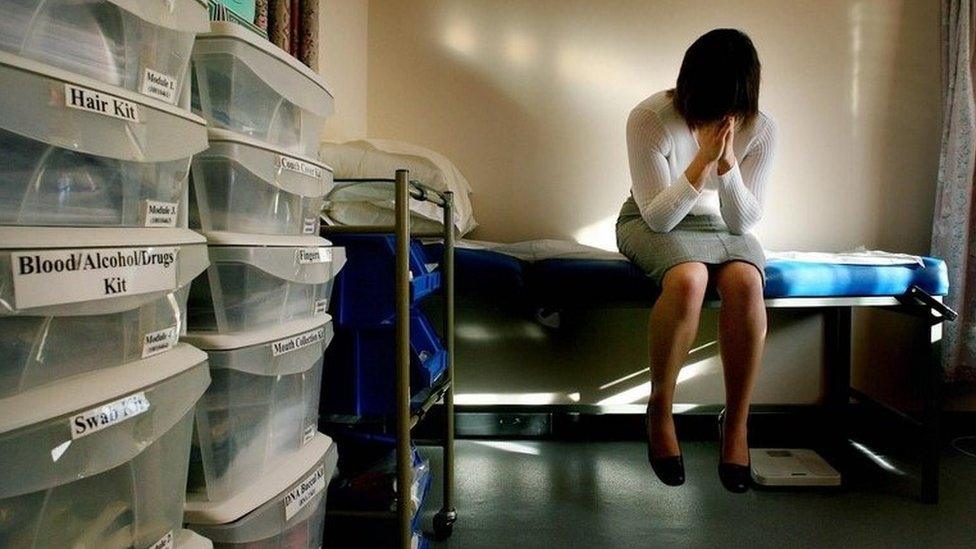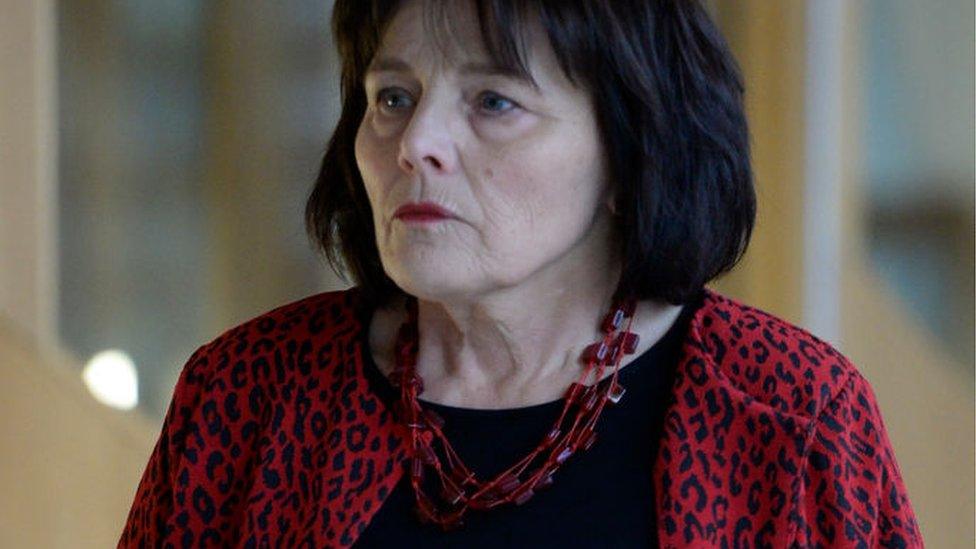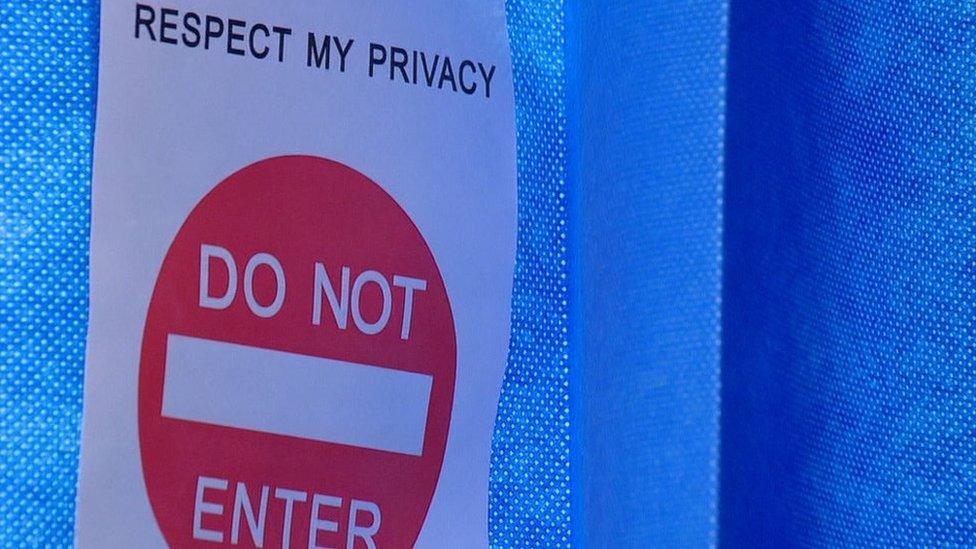Self-referral rape examinations to be extended across Scotland
- Published

Victims will not have to report an assault to receive a forensic examination
Victims of sexual assault are to be given the right to ask for forensic examinations without reporting a crime to police first.
The Forensic Medical Services Bill , externalplaces an obligation on health boards to provide direct access to these services.
Rape victims will be able to refer themselves for examinations throughout Scotland.
Just two health boards currently have self-referral procedures in place.
The move is part of efforts to end examinations within police stations.
It follows criticism from an independent watchdog, which said services in Scotland lagged behind the rest of the UK.
The primary purpose of such examinations is to ensure victims of sexual crime receive medical attention, while forensic evidence is also gathered for possible prosecution.

Health Secretary Jeane Freeman wants a more consistent approach to rape examination
The majority of health boards require crimes to be reported to police before victims can access forensic medical examinations.
Only NHS Tayside and NHS Greater Glasgow and Clyde currently accept self-referrals.
Health Secretary Jeane Freeman said: "By ensuring the choice to self-refer is available consistently across Scotland, we hope that people who might currently be reluctant to make a police report are encouraged to access appropriate NHS services and get the support they need at a time of significant trauma."
Any evidence collected is stored, allowing victims to decide whether to lodge a police report in their own time.
The bill also ensures victims retain control over any samples and property held by the health board, and will be able to request that evidence is destroyed.
Specialist nurses
The Scottish government has also announced £200,000 will be provided by the rape and sexual assault taskforce, external to develop the role of nurse sexual offence examiners.
This will allow nurses to be trained in performing a forensic examination, as well as giving evidence in court.

Rape Crisis Scotland welcomed the bill, saying it was an important step forward in transforming services for sexual assault survivors.
Chief executive Sandy Brindley said: "Sexual crimes are fundamentally abuses of power and about taking someone's control - which is why it is so important and encouraging that this bill recognises and works to counter this by making sure that survivors are in control of procedures and processes around their evidence and property.
"Adopting a trauma-informed approach that focuses on the individual, on their needs and their health care is vital, and an important element of this is moving to using nurses as forensic examiners."
A new postgraduate qualification is also being developed to build multi-disciplinary workforce to support services in rural and island communities and increase the number of women available to carry out examinations.